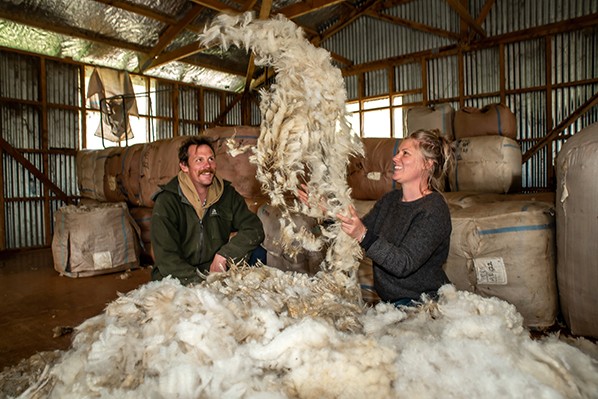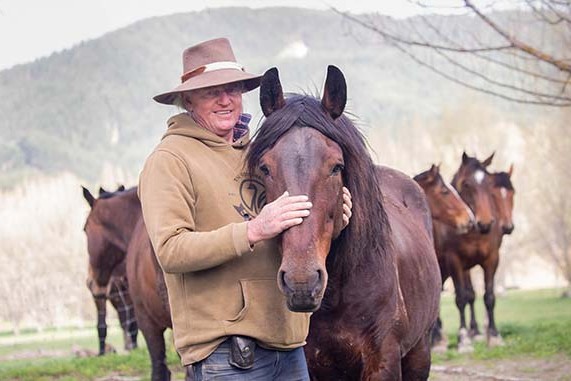BY: ANNABELLE LATZ
There have been harder, colder, more painful and tougher times.
The thoughts of this year’s female winner of Kathmandu Coast to Coast’s Longest Day when she digs deep.
Meet Corrinne O’Donnell (30) the pharmacist, bull calf rearer, soon to be kiwifruit producer, and MBA student, who draws a synergy between racing and other compartments of her life.
“You have good days and bad days. You take it on board and learn from what you did wrong and what you did well.”
Not a moment during the final 50km road bike stage of February’s iconic New Zealand multisport race did she think she had it in the bag.
Going as hard as she could for as long as she could, she biked, ran and paddled the 243km race from Kumara Beach to Sumner Beach, crossing the finish line with 12 hours 53 seconds on the clock, just three kilometres ahead of her next opponent. It was the thought of messing it up that close to the finish that got her to the line.
Despite the result, it was far from the perfect race.
Rough kayak conditions with strong winds for the 67km paddle through the Waimakariri Gorge made for a rough kayak, and earlier in the day the 33km Goat Pass mountain run was dosed with cold conditions and high river levels.
Bay of Plenty based, her experience in racing was her biggest contribution to the win.
Corrinne and her husband Thomas, a civil engineer who used to manage Corrinne’s parents’ dairy farm, live in Edgecumbe. They fatten up 200 bull calves off her parent’s runoff, selling early on as they get the best prices.
A spare haybarn houses the calves for twice a day feeding of 6L of milk/feed, then they’re moved to paddocks, (50 calves/paddock) for once a day feeding, when calf meal is also introduced.
They’re weaned off the milk at 70kg.
She tries to use the surplus colostrum from her parents’ farm early on to help the calves get those protective antibodies, leaving it as late as possible to transition on to milk powder. Like all farming, the weather dictates a lot of her decisions.
She usually bases each stage on the particular calf’s development.
“A good sized four-day old calf will get to 100kg in a 12 weeks, using my system.”
Her dad’s dairy yearlings come behind to graze down and clean out.
Being a self-employed pharmacist allows for the “very rewarding” calf rearing and their kiwifruit orchard which was developed two years ago, a venture that’s doing well in the Bay of Plenty.
“We have loved the challenge, and learning about a new industry.”
A nursery from bruno seedlings has established the G3 (Sungold) variety for their 5.8 canopy hectare orchard, with an “ambitious goal” of about 9000 trays/ha; aiming for their first crop in 2021.
They have tried to do most of the work themselves. Both families have helped out with jobs like post ramping or wire straining.
“My Nana helped us mark post placements.”
The bay size is 3.6m by 6m. They used the opposing female system; male plant every second row of every second bay, then after a few years they will change to strip female.
“We used bruno root stock, applied for G3 licence then grafted on G3 once our licence was successful.”
Registering with EastPack and Zespri, attending field days and talking to others in the industry has helped with their learning.
“Working on the land, you also get to see progression, that could be nurturing a healthy bull calf up to weight or seeing kiwifruit plants grow and develop.”
She believes the industry is always keen to find better ways to farm and likes to be part of that.
Her younger brother is also studying his MBA.
“I love to learn and feel like it is important to keep developing myself.”
She says it might help her with the dining room table conversations.
“We are a competitive family and love to talk about the agriculture/horticulture industry.”
Corrinne is grateful to live in a culture where everyone is willing to help out and finds no one is too competitive.
In the pharmaceutical industry they say ‘it’s better for everyone to be better’.
“In agriculture, and horticulture it’s about being better to make the industry better.” Born and raised on a dairy farm, her mother Donna Smit is a Fonterra director.
“As a kid, my siblings and I always helped out, and we are all involved with farming in some way now, so maybe we enjoyed it more than we realised as kids.”
Corrine is a familiar face around NZ’s multi-sport and adventure racing scene; this was her fourth time crossing the finish line at Sumner Beach and she has always finished in the top five.
The sports have taken her to China, Reunion Island, cycling in Holland with a Dutch team, and the NZ adventure race GODZone.
Corrinne’s uncle Neil Jones has also clinched a Coast to Coast title, his stories always intrigued her.
“I had always thought Coast to Coast and adventure racing seemed liked the ultimate challenge.”




